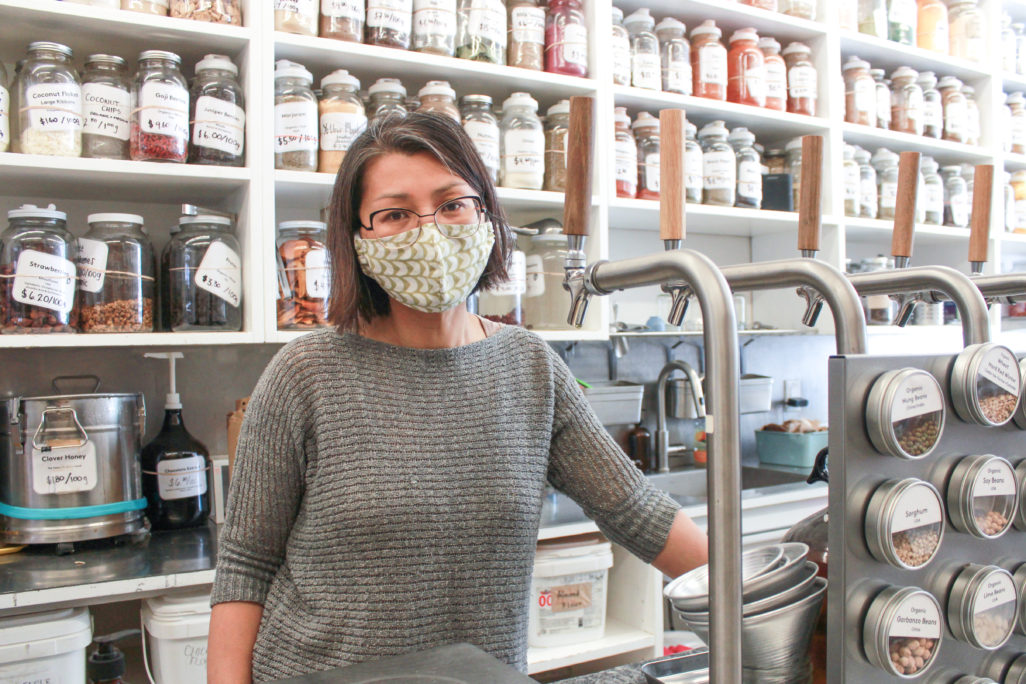
In response to Health Ministry guidelines against customer containers, Linh Truong invested $15,000 into her Main Street refill store, the Soap Dispensary, to introduce a jar deposit system that adheres to her zero-waste principles. Photo by Serena Renner.
For about a minute, it seemed we had this waste thing figured out. A reusable mug for takeaway coffee. A cupboard full of cloth shopping bags. Glass jars to refill quinoa and maple syrup at the nearest bulk store. Then COVID-19 hit.
Now, if we want to support a local café, we have to accept that plastic-lined cup. Many grocery stores, citing pandemic safety, make us use their fresh plastic bags. Restaurants survive by selling takeout food — delivered in single-use packaging. And wherever the battle against the coronavirus rages, mountains of masks, gloves and other PPE pile up.
It’s easy to forget the waste-busting momentum Vancouver had mere months ago.
On Jan. 1, foam cups and takeout containers were banned under the city’s single-use reduction strategy. Disposable utensils and plastic straws (except those reserved for people with disabilities) were set to be phased out starting April 22. By early 2021, businesses were meant to have ditched plastic bags and started charging for paper ones as well as single-use cups.
The federal government wasn’t far behind. Canada released a draft scientific report on plastic pollution in January, which points to packaging as the largest source of plastic waste in the country. Trudeau announced his intention to ban harmful single-use plastics by 2021. But COVID-19 stalled enforcement and timelines.
“We’re not going to put businesses at a disadvantage by enforcing [single-use bans] at this time,” said Albert Shamess, director of waste management for the City of Vancouver. “At the end of the day, we’ll rely on advice from the health authorities.”
Hard to argue with that. But, if the new normal is disposable, what does that mean for waste, recycling and pollution going forward? Could there be a better way to keep the city safe, fed and on track for reduction goals?
My journey to answer such questions took me from the city dump and recycling centres to the vegan cafes of Main Street. I met business owners allowing reusable containers, delivering groceries by bike, and reinventing packaging altogether. I ended up in a place far from where I started. COVID-19 might just be the wake-up call to create a more circular local economy.
(Read the full story, published June 5 2020, on The Tyee).